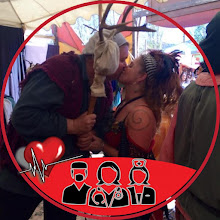

Ramsey Campbell wrote some of the most prolific and lasting Cthulhu Mythos tales in the latter half of the 20th Century. Although he has long since tried to distance himself from writing Lovecraftian setting stories, he himself freely admits that his favorite tales he produced are those dealing with those soulless god-beings of the Mythos.
As a more modern horror writer, Campbell is heavily influenced by of course Lovecraft, but also Howard, Robert Bloch, Robert Chambers (of “The King in Yellow” fame), and Richard Matheson (“I am Legend” and about a dozen Twilight Zone episodes). As a child of the 60’s and 70’s, these were most often the times his best tales take place in (80’s too). Shagadelic, baby! Yeah! These decades actually worked well as a time period for old school horror. Among free love and The Drug Revolution, Cthulhu and his minions could crawl in the psyche of mankind with impunity.
I think Campbell greatest contribution to the Mythos is The Severn River Valley setting. His earliest Mythos works were originally set in Lovecraft’s Massachusetts, but it was August Derleth who suggested that he come up with a new setting for Mythos tales. So Severn Valley was born, based on an actual river and area of England (The Severn is shown in the photo above) that he spent time in during his youth (including local towns and city areas still in ruins from The Blitz of WW2). His Brichester fills in for Lovecraft’s Arkham, and The town of Clotton is his Dunwich. Many of Campbell’s Severn Valley tales take place in these two locations and immediate environs. Campbell’s Necronomicon is The “Revelations of Glaaki,” at the time of the tales being reprinted in 12 volumes by Brichester’s Ultimate Press, who among other things are also producing pornography (finally the Mythos and sex meet, albeit in a printing shop). Brichester U. fills in for Miskatonic U. To give you a groovy hippy era vibe, Brichester has a variety of mod establishments, including a science fiction bookstore, tennis courts, and a vegetarian student hang-out called “Peace and Beans.”
All sorts of interesting things are going on in Severn Valley. “The Tomb-Herd” is a particularly chilling crowd. There are the tree-like Dark Young of Lovecraft fame running around in the woods (one of the few creatures in his works that Campbell did not invent), a god-monster living in a lake and blighting the homes around it with its cult, and the spacecraft of alien insects encamped in a clearing. There is even a sort of “Innsmouth taint” in one area, but instead of taking on the appearance of a toad, the rural villagers bring to mind the look of fat-faced rabbits (both amusing and chilling).
Campbell came up with quite a few of his own gods for the Mythos, including Eihort, a sort of multi-eyed elephant shaped blob that lays its young into a victim, who is driven mad and finally dies during a thunderstorm, tiny Eihorts bursting forth from his body. One of my favorites is Y’Golonac, a fat, headless being with eyes in its hands. Y’Golonac is usually found sitting behind a massive brick wall in a cavern, waiting for his name to be read aloud from “Revelations.” When it happens, he takes over the reader’s body and wreaks havoc. The Render of the Veils is especially scary, a being who shows you what the world really looks like, and when you see that you go forever mad. His priests call him forth with a blindfold on, which must be a treat to experience. It really is a clever take on why you can never see your God. I used all three of these gods in my 90’s CoC games.
“The Inhabitant of the Lake and Less Welcome Tenents” and “Cold Print” are the anthologies you want to read to enjoy the Severn Valley Setting. But besides his Mythos tales, Campbell has also done extensive work in other aspects of horror, drama, and fantasy. In the 70’s he completed three of Robert E. Howards unfinished Solomon Kane tales. He has written novels about serial killers, demonic alien invasions, and even novelizations of Universal Horror classics. Just a few years ago, after working a several month stint at a Borders Bookstore, he penned a novel about a bookstore staff trapped and hunted by evil forces while working an all night shelving shift (The Overnight, 2004). Clearly, just like Stephen King and Lovecraft, Campell had the ability to make the mundane and normal seem sinister.
Though I had not heard of Campbell in the 80’s, by the early 90’s I had discovered him (I think because of some of his entities showing up in a Call of Cthulhu supplement), and devoured his Lovecraft inspired stuff in a matter of months. He had a huge influence on my Call of Cthulhu games in the 90’s, and my very last few games I ended up doing in the late 90’s were going to be set in Severn Valley. But for some reason I went with Arkham instead. Pity, but maybe one day…
I plan to post more about Campell and his creations in future CoC Friday posts, but in the meantime, if you haven’t read him…go check out those anthologies!















